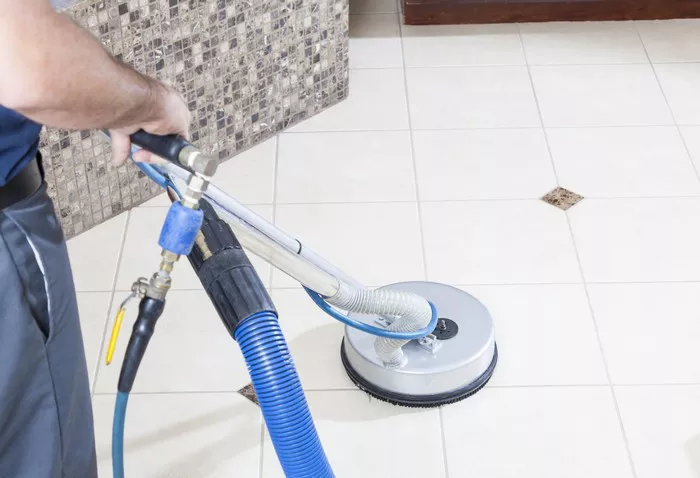In the world of cleaning, scrubbers have become essential tools for both residential and commercial spaces. These versatile machines are designed to effectively clean floors and surfaces. However, like any cleaning equipment, scrubbers have their advantages and disadvantages. Understanding these can help you make an informed decision about whether a scrubber is the right choice for your cleaning needs.
What is a Scrubber?
A scrubber is a cleaning machine that uses a combination of water, cleaning solution, and mechanical scrubbing action to remove dirt and stains from surfaces. They come in various types, including automatic floor scrubbers, rotary scrubbers, and handheld models. Each type serves specific cleaning purposes and environments.
The Advantages of Using a Scrubber
Efficiency in Cleaning
One of the most significant advantages of using a scrubber is its efficiency. Scrubbers can cover large areas in a fraction of the time it would take to clean manually. For example, using a mop and bucket may require several trips back and forth to rinse and change the water. In contrast, a scrubber continuously applies cleaning solution while scrubbing, making the process faster and more effective.
Improved Cleaning Quality
Scrubbers are designed to provide a deeper clean than traditional methods. The mechanical scrubbing action can break down dirt and grime that might be difficult to remove with a mop alone. This means cleaner surfaces and reduced chances of recurring stains or residues. For environments such as restaurants or healthcare facilities, where hygiene is paramount, scrubbers can ensure compliance with cleanliness standards.
Versatility
Scrubbers are versatile tools that can be used on various surfaces, including tile, vinyl, concrete, and even carpets with the right attachments. This adaptability makes them suitable for a wide range of cleaning tasks. Whether you need to clean a commercial warehouse floor or a small office space, there is likely a scrubber model that fits your needs.
Reduction in Labor Costs
While the initial investment in a scrubber may be higher than traditional cleaning tools, they can lead to long-term savings. The efficiency and speed of scrubbers reduce the time needed for cleaning tasks, which can lower labor costs. Additionally, fewer staff members may be required to achieve the same level of cleanliness.
Less Physical Strain
Using a scrubber can significantly reduce the physical strain on cleaning personnel. Manual scrubbing can be tiring and hard on the body, especially for individuals who clean large areas regularly. Scrubbers take over much of the physical work, allowing operators to focus on other tasks or work longer hours without fatigue.
Environmentally Friendly Options
Many modern scrubbers use less water and fewer chemicals than traditional cleaning methods. This can make them a more environmentally friendly choice. Eco-friendly scrubbers are designed to minimize their impact on the environment while still delivering effective cleaning results.
see also: Are Scrubbers Good for the Environment?
The Disadvantages of Using a Scrubber
Initial Cost
One of the main drawbacks of scrubbers is their initial cost. They can be significantly more expensive than traditional mops and buckets. This cost may deter some businesses or homeowners from investing in a scrubber, especially if they have limited cleaning needs. It is essential to weigh the upfront investment against potential long-term savings in labor and cleaning supplies.
Maintenance Requirements
Scrubbers require regular maintenance to operate effectively. This includes cleaning the brushes, emptying and refilling tanks, and occasionally servicing the machine. Neglecting maintenance can lead to decreased performance and a shorter lifespan for the equipment. Businesses must be prepared to allocate time and resources for upkeep.
Learning Curve
While scrubbers are generally user-friendly, there may be a learning curve for new operators. Understanding how to adjust settings, manage cleaning solutions, and handle the equipment can take time. Proper training is essential to ensure staff can operate the machine safely and effectively. This can be a barrier for businesses with high staff turnover or limited training resources.
Size and Storage
Scrubbers can be bulky and may require a dedicated storage space. This can be a disadvantage for businesses or homes with limited storage options. Additionally, some scrubber models may be challenging to maneuver in tight spaces or around furniture, which can limit their effectiveness in certain environments.
Not Suitable for All Surfaces
While scrubbers are versatile, they are not suitable for every surface. For instance, delicate surfaces or certain types of hardwood floors may be damaged by a scrubber. It is crucial to know the compatibility of the scrubber with different materials before using it.
Noise Levels
Many scrubbers can be noisy during operation. This can be a concern in quiet environments, such as libraries, hospitals, or offices. The noise can be disruptive to daily activities, and some businesses may need to schedule cleaning during off-peak hours to minimize disturbance.
Conclusion
In summary, scrubbers are powerful cleaning tools that offer numerous advantages, including efficiency, improved cleaning quality, and versatility. They can reduce labor costs and physical strain while providing a more environmentally friendly cleaning solution. However, potential users must also consider the drawbacks, such as the initial investment, maintenance requirements, and learning curve. By weighing these pros and cons, you can make an informed decision about whether a scrubber is the right choice for your cleaning needs. Ultimately, the decision will depend on your specific requirements, budget, and cleaning environment. Investing in a scrubber could prove beneficial for large areas or high-traffic spaces, while traditional cleaning methods might still be adequate for smaller or less frequently used areas.
Related topics:

